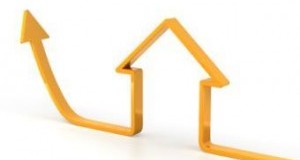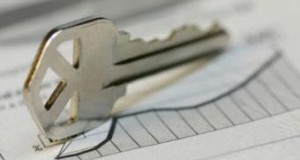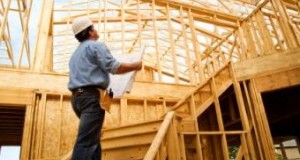In a poll released this month, Gallup reports only 21 percent of consumers put "a lot" of trust in the security efforts taken by companies they regularly do business with. A combined 30 percent have little to no trust at all. While consumers expressed the most trust for banks and credit card companies, that higher confidence could stem from the fact that these businesses are subject to increased regulatory scrutiny as the result of the 2008 financial crisis.
Read More »Home Price Expectations Pick Up for Most Regions
A survey from the New York Fed finds consumers expect home prices to increase over the next year in every region except one—the South—where a slight decrease is expected.
Read More »Economic Concerns Weigh on May Housing Confidence
Consumers' attitudes about housing diminished somewhat last month as economic worries weighed on their minds, according to new survey results from Fannie Mae. "While recent housing activity suggests that the worst of the housing slump may be behind us, this caution among consumers supports our expectation that the rebound in home sales will likely be too modest to pull sales for all of 2014 ahead of last year," Doug Duncan, chief economist.
Read More »Majority of Americans Believe Housing Crisis Isn’t Over
In its second annual survey of housing attitudes, the MacArthur Foundation found 51 percent of American consumers still believe the country is in the midst of its housing crisis, while another 19 percent believe the worst is yet to come. Only 25 percent said they believe "the housing crisis is pretty much over." At least part of that pessimism stems from challenges related to housing affordability in today's economy.
Read More »Construction Spending Climbs 0.2% in April
The Department of Commerce estimates overall construction outlays came to a seasonally adjusted annual rate of $953.5 billion in April, just up from March's revised $951.6 billion (originally reported at $942.5 billion). Despite the small increase, the gain brought spending levels up to their highest since March 2009.
Read More »Consumer Confidence Improves with Payroll Gains
After dipping in April, the Conference Board's Consumer Confidence Index saw modest improvement in May as optimism for the job market grew. The index rebounded to 83.0 in the latest reading, up from a downwardly revised 81.7 in April, the group reported Tuesday.
Read More »Housing Starts Rise on Multifamily Spike
According to the Commerce Department and HUD, privately owned housing starts last month were at an estimated seasonally adjusted annual rate of 1.07 million, representing a 13.2 percent jump from March’s barely revised pace of 947,000. Unfortunately for the supply-constrained single-family market, most of that spike came in apartment buildings.
Read More »Disappointing Sales Knock Down Builder Confidence
The National Association of Home Builders (NAHB) released Thursday its Housing Market Index (HMI) for May, reporting another slip in builder confidence as single-family home sales continue to disappoint. The index, a gauge of homebuilder sentiment toward the single-family housing market, dropped to 45 from a downwardly revised reading of 46 in April. A score below 50 indicates a market viewed by more builders as “poor” rather than “good.”
Read More »As Sellers Gain Confidence, They Engage in ‘Risky’ Pricing Approach
As home sellers become more confident in the housing market, many are taking on what Redfin calls a “risky pricing strategy,” according to the online real estate brokerage’s latest survey. A little more than 40 percent of home sellers plan to price their homes above market value, Redfin’s data shows. Regardless of this bolstered confidence, Redfin warns overpricing a home is not a wise strategy in today’s market.
Read More »Builder Confidence Still Tepid
The National Association of Home Builders (NAHB) reported a one-point increase in its monthly Housing Market Index (HMI), a measure of builders’ confidence in the market for newly constructed single-family homes. March’s index was revised down to 46 from an originally reported 47. Registering 47 as of the latest release, the index has now spent three straight months below 50, the threshold between a market viewed largely as “good” and one viewed as “bad.”
Read More »
 theMReport.com Your trusted source for mortgage banking news
theMReport.com Your trusted source for mortgage banking news










